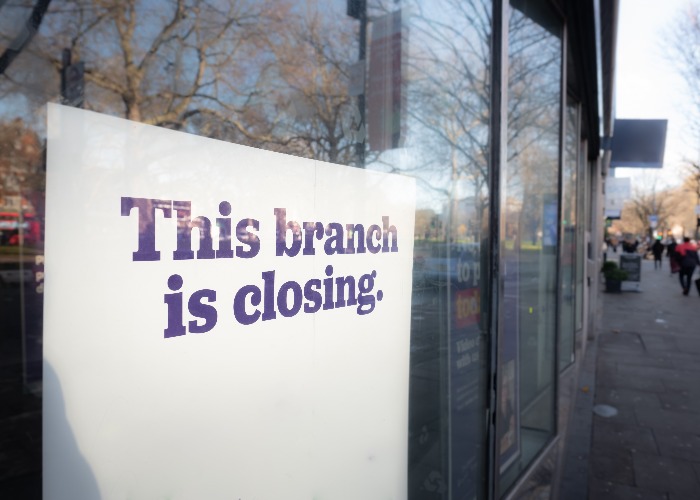FCA announces new rules in bid to protect access to cash

Banks could be required to keep branches open until alternative services are provided.
The financial regulator has unveiled new rules it hopes will help the three million people who still rely on cash.
Bank branches have been closing at a staggering rate – hundreds have already closed in the first half of 2024 alone – while almost 4,500 ATMs were scrapped between June 2021 and 2023, according to the Financial Conduct Authority (FCA).
This rapid scaling back has left many households either unable to access physical cash or having to travel miles to do so.
And of course, last week’s global IT outage has highlighted the dangers of relying on a cashless society in general.
In response, the FCA has called on banks and buildings societies to “weigh up if local communities lack access to cash services, like branches and ATMs, and plug significant gaps.”
Crucially, the FCA's powers don’t go far enough to force any bank to stay open indefinitely, but “will have an impact where branch closures leave significant gaps in local cash access”.
It add that gaps in cash access could be filled with a range of measures, including banking hubs, ATMs (including deposit ATMs) and Post Office facilities.
Here’s a breakdown of what the FCA’s new rules will require banks and building societies to do from 18 September:
- Assess cash access and understand if additional services are needed, when changes are being made to local services;
- Respond to local residents, community organisations and representative groups, who will be able to request an assessment of whether there are gaps in local cash access;
- Where significant gaps are found, deliver reasonable additional cash services;
- Keep facilities, including bank branches and ATMs, open until any additional cash services identified are available.
FCA: we’ll ensure reasonable access to cash
When announcing the new rules, Sheldon Mills, executive director of consumers and competition at the FCA, said: “Three million people continue to rely on cash, even as digital payments become more popular.
“And many small businesses still need somewhere to safely deposit their takings each day.
“That’s why we’ve acted quickly in response to new powers given to us by Parliament to ensure reasonable access to cash withdrawal and deposits is maintained.”
Responding to the announcement, Lauren Peel, director of consumer insights at the not-for-profit Fair4All Finance, said: "Access to cash is a key feature of an inclusive financial services sector.
“Of the 20.3 million adults currently living in financially vulnerable circumstances, fewer than half (47%) say they never use cash any more, and just 37% of older households.
“We need to ensure all households can find the products and services they need from banks, credit unions and other community-based providers to avoid adding to the financial hardships which are familiar to millions.”
Comments
Be the first to comment
Do you want to comment on this article? You need to be signed in for this feature